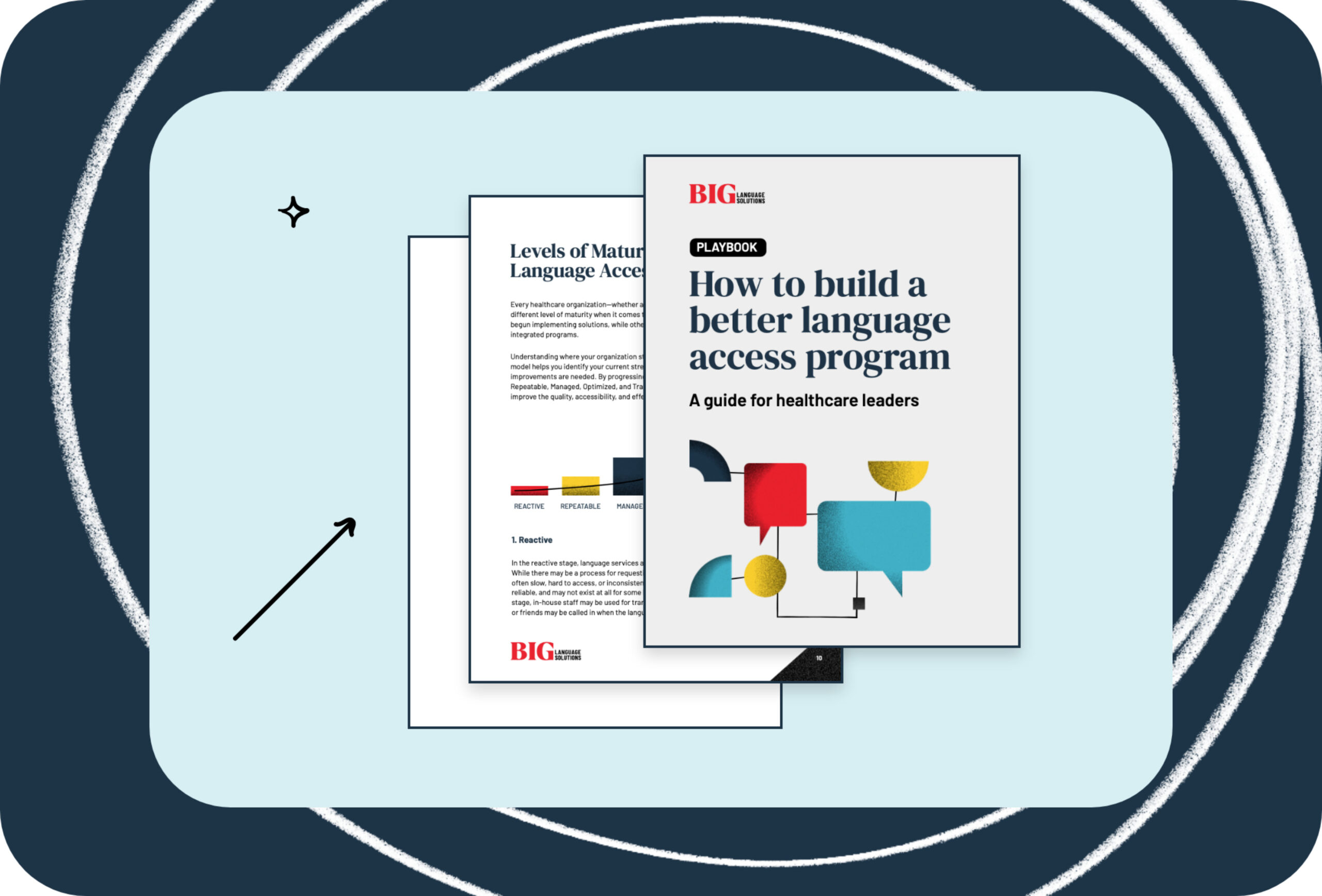Insights
Read our expert insights to understand industry trends shaping the future of translation, interpretation, and language solutions. Our valuable perspectives help businesses navigate communication in any language, with confidence.
LATEST CONTENT SELECTION
Industry Insights

LANGUAGE ACCESS GUIDE How to Build a Better Language Access Program: A Guide for Healthcare Leaders Effective communication is essential...

How We’re Using AI to Make Interpreter QA Smarter, Faster, and More Scalable
Discover how AI-powered QA helps BIG improve interpreter performance with broader coverage, smarter insights, and real-time oversight.
Explore by Interest
Explore by Industry

How We Handle PHI During Workflows to Guarantee Regulatory Compliance
Compliance and security are essential anywhere PHI moves across people, tools, and vendors. Learn how BIG Language Solutions protects sensitive

Empowering Rare Disease Research Across 137 Countries
Discover how BIG Language Solutions helped Across Healthcare expand its Matrix platform into 137 countries by delivering medically accurate, culturally

Why Translation Needs to Be a Key Part of Your CSRD Compliance Strategy
Discover why translation is crucial for CSRD compliance and how companies can streamline multilingual reporting to meet regulatory requirements across

A Smarter Way to Handle Translation at Speed and Scale
Translation now moves at two speeds: instant, variable content and high-volume, repeatable communications. Learn how LanguageNow™ and LanguageExpress™ work together

Preparing for CMS’s 7-Day Rule: What Health Plans Should Do Now
CMS’s 7-Day Rule is coming. Learn what’s changing, where translation creates risk, and how health plans can prepare workflows before

How We’re Using AI to Make Interpreter QA Smarter, Faster, and More Scalable
Discover how AI-powered QA helps BIG improve interpreter performance with broader coverage, smarter insights, and real-time oversight.

4 Common Misconceptions About Offshore Linguists and How They Might Be Holding You Back
Geography shouldn’t limit quality in language access. Relying solely on in-country interpreters can restrict availability and delay service. By tapping

How Payors and Health Systems Can Meet CMS’s 7-Day Deadline with a Smarter Translation Workflow
Starting Jan 1, 2026, CMS cuts prior authorization timelines to 7 days. Learn how payors and health systems can deliver

STAY IN TOUCH
